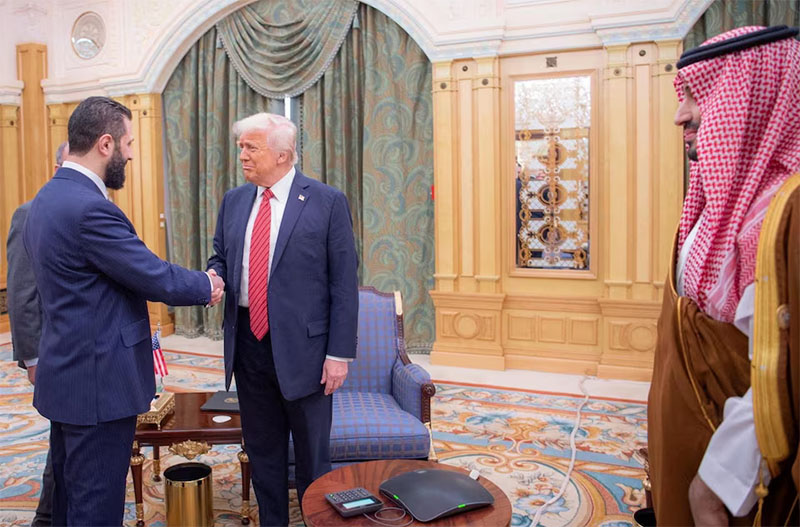Photo Credit: Getty Images
President Donald Trump used his Gulf visit to reframe U.S. policy in the Middle East. On his first stop in Riyadh, he pledged to lift longstanding sanctions on Syria while securing an unprecedented $600 billion investment commitment from Saudi Arabia. The twin announcements signal a recalibration of American strategy in the region.
The visit began with pomp. Trump was greeted with a lavender carpet, Arabian horses, and Crown Prince Mohammed bin Salman at the tarmac. At the Riyadh investment forum, Trump declared, "We have no stronger partner than Saudi Arabia," setting the tone for a business-first diplomacy tour.
Central to the agenda was a $142 billion arms deal—the largest in U.S. history, according to the White House. The agreement includes investments in defense, energy, and space, with further deals potentially pushing the total value to $1 trillion. "From the moment we started, we've seen wealth pouring into America," Trump said, crediting the Gulf for economic revitalization efforts in his second term.
Beyond commercial ties, Trump made a dramatic foreign policy move by announcing the end of U.S. sanctions on Syria. The decision came at the request of Crown Prince Mohammed bin Salman. "Oh, what I do for the crown prince," Trump quipped, before describing the move as a chance for Syria "to move forward with a chance at greatness."
The sanctions, some dating back to 2004 and intensified during the civil war, had crippled Syria's economy. With President Bashar al-Assad ousted in December and transitional leader Ahmed al-Sharaa in place, officials see an opening. Syrian Foreign Minister Asaad al-Shibani hailed the development as a "new start" for reconstruction.
Former U.S. Ambassador to Syria, Robert Ford, supported the move, stating: "The country is simply devastated after the 13-year civil war. Removing the sanctions will enable international capital flows. It's absolutely vital."
Trump's broader aim appeared to center on economic integration as a means to regional stability. He was joined in Riyadh by Tesla's Elon Musk, OpenAI's Sam Altman, and BlackRock's Larry Fink—symbolizing a tech-forward investment push from both sides.
However, not all ambitions bore fruit. Trump expressed hope for Saudi Arabia to join the Abraham Accords but was rebuffed. Crown Prince Mohammed bin Salman reiterated that such normalization with Israel hinges on a permanent ceasefire in Gaza and clear progress toward Palestinian statehood.
Trump departs next for Qatar and the UAE, where further agreements are expected. In the wake of these announcements, one thing is clear: diplomacy, in Trump's second term, is being written in dollars, not doctrine.


